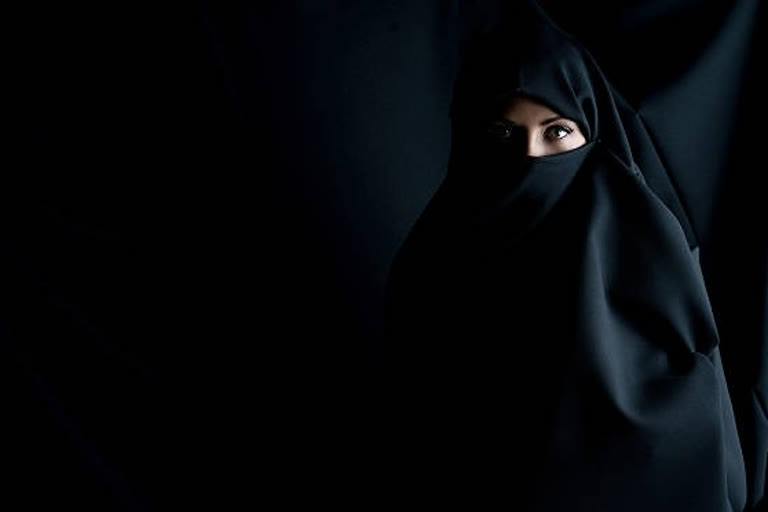Bengaluru (Karnataka): Hearing of the batch of petitions in the Hijab ban controversy in Karnataka HC has entered the ninth day. The full bench comprising Chief Justice Ritu Raj Awasthi and Justices Krishna S Dixit and JM Khazi resumed hearing the case at 2:30 pm today. The bench had on February 10, barred the wearing of Hijab, saffron shawls, scarves in school until the final directions from the court. As students continue to protest the Hijab ban, several schools, and colleges either prohibit the protesting students from entering the institution or have declared holiday to avoid conflicts.
Calling CFI a radical organization that is "spearheading the drum beating of Hijab," the senior advocate also said that CFI has been organizing the protests against the Hijab ban. He goes on to question the authenticity of some of the petitioners' claims that they were "scolded" by teachers and says the uniform has been compulsory for nearly two decades and the students have a problem with it only now, because of CFI's influence. Senior advocate argues that the rule of uniform only exists to keep order, he added.
Continuing submissions on behalf of PU College in Udupi which is opposing Hijab, senior Advocate S Nagananad brings attention to the petitioners' photos in Aadhar card. He says that petitioners are okay with not wearing Hijab all the time as they aren't wearing Hijab in Aadhar card photos. He alleges that on 31st December 2021, persons from Campus Front of India approached the "college authorities and insisted on allowing the wearing of Hijab".
"If I have a child at home, 10 years old, he is misbehaving. I tell him don't do this...If he continues, then the parent will berate the child, & might say will slap," to say that the authority exercised by teachers over students are similar to "parental rights".
Senior Advocate Nagananad submits that students should start attending classes and not wear external symbols of any religion. "A right-wing association of Hindus wants to wear saffron shawls. Tomorrow Muslim boys will want to wear skull-cap. Where is this going to end?" he asked, ending his arguments on behalf of PU college.
Senior Advocate Sajan Poovayya starts making submissions on behalf of College Development Council and says CDC was constituted to provide welfare in tune with local requirements. He argues that no one in the school insisted on wearing Hijab until December and that allowing a handful of students to wear Hijab would be an injustice to other students who may not want to wear it. If an institution does allow religious symbols, "students who do not wear them will be regarded as areligious within the community".
Poovayya says even if Hijab is an 'Essential Religious Practise,' it shouldn't enter a secular educational institution. Talking about how Hijab is a form of discrimination because we expect "modesty" from women, he asks "can we dress our girls differently in the name of modesty?".
Hearing for the day ended with Chief Justice clarifying that the Hijab ban applies only to students and not teachers.
READ: Hijab ban row in Karnataka HC: Chief Justice wants to finish the hearing by this week



